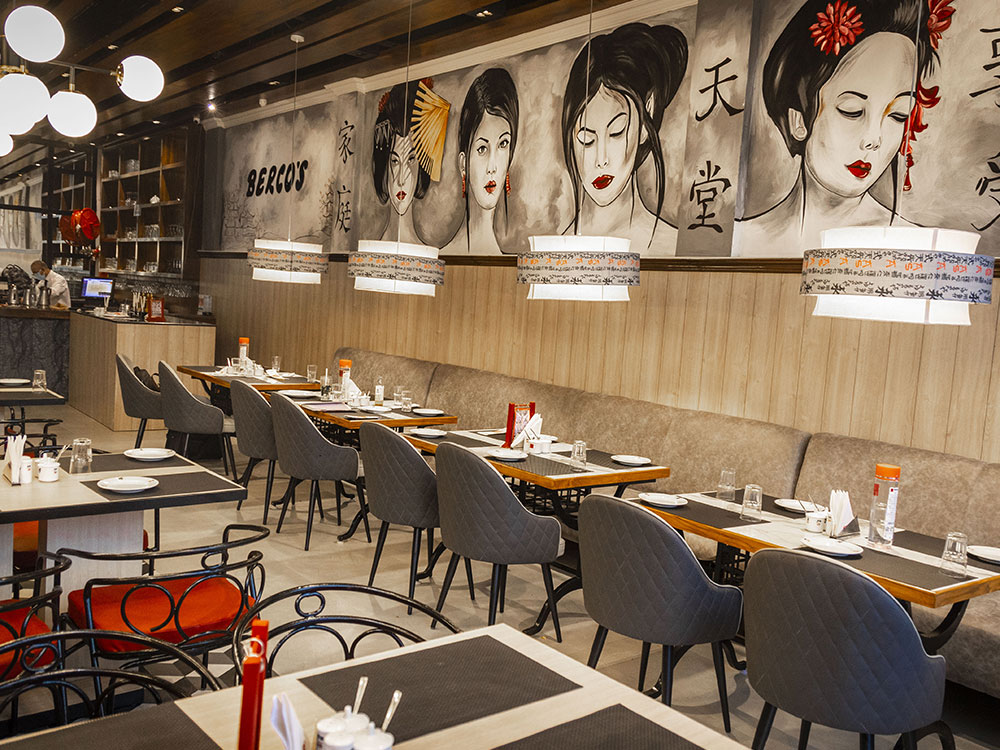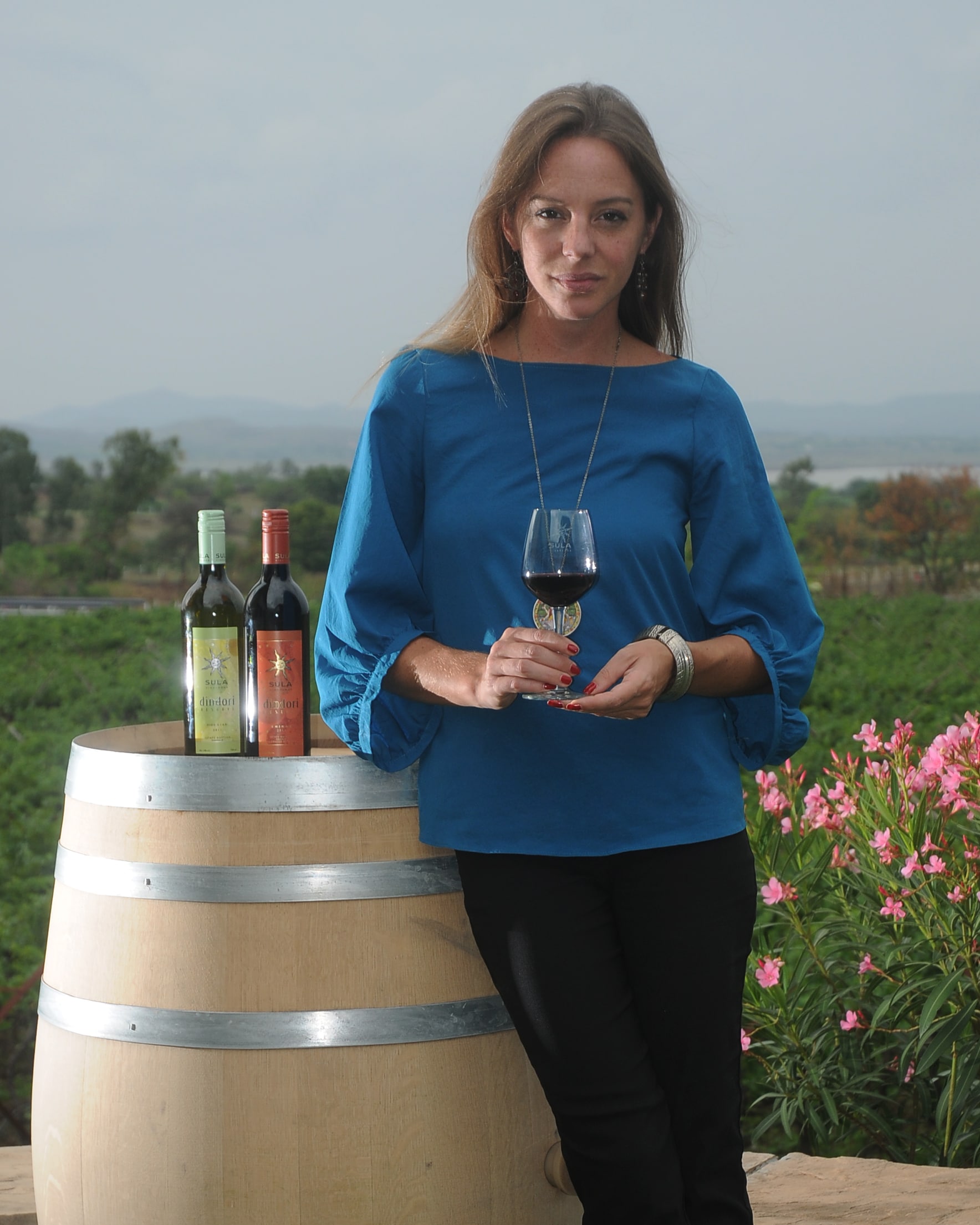If a lot can happen over coffee, a lot more can happen over a chat as Swedish sommelier Cecilia Oldne discovered after striking up a conversation with the owner of one of India's largest vineyards eight years ago. Now the head of international business and the global brand ambassador of Sula Vineyards, Cecilia Oldne says consistency can make India a leading wine producer. (Pic/Sula Vineyards global brand ambassdor Cecilia Oldne)"If we can keep up the consistency, India can become one of the world's leading wine producers. China has been trying for years, but India has come much far ahead," said Oldne, who in her five years with the company has taken its products to 20 countries, 10 more than when she came on board.Oldne first met Sula Vineyards owner Rajeev Samant at a wine event in South Africa in 2004. "He was carrying these little bottles of wine and he said: 'Try it'. I did and said to myself: 'Wow, India makes wine," Oldne, who was here for the 200th event of the Delhi Wine Club Friday night, told IANS in an interview.
"We kept meeting at various events over the next three years and he was always carrying his wine. I could see the improvements and that impressed me. I had always wanted to go to Asia, the Middle East or China but Rajeev consistently wanted me to join him," said Oldne, who has a British degree in international business studies, is a wine writer and wine judge and has previously undertaken assignments like being in charge of the wines served at Stockholm's annual Nobel Banquet.Now based in Mumbai, Oldne took the plunge in 2007 and since then, there's been no looking back."I've become Sula. I've become Indianised and I've changed in many ways. I have no plans to leave," she said, adding: "It's an honour to be appointed the global brand ambassador of a company that is not only pioneering the growth of the Indian wine industry but is doing so in a way that combines sustainability and benefits to the local economy.""We're aiming to become one of the most sustainable wineries in the world," Oldne said.That's no idle boast because a series of environmental best practices adopted by Sula Vineyards has enabled it to do away with diesel gensets for generating power, meet 60-70 percent of its water requirements from water harvesting and 40 percent of its fertiliser needs through vermiculture.The five years that she's been with Sula has seen the brand introduced to new markets like Canada, Belgium, the Middle East, Nepal and Bhutan, apart from consolidating in countries like Japan, Britain and the US. The last two are particularly important due to the large Indian diaspora in cities like New York and San Fransisco, which Oldne described as "trend setters"."Our markets are growing by the day," Oldne told IANS.That's quite an achievement in a space that is dominated by wines from France, Italy, the US, Australia, Spain, Argentina and Chile, among others.That's just one aspect of her responsibilities. Over the years, she has brought prestigious international brands like Remy Martin, Cointreau, Balvenie Single Malt Whiskey, Hendrick's Gin, Sierra Tequila, Cono Sur and Trapiche to the company's portfolio and they are marketed in India in the Sula Selections' umbrella.Over the years, Sula has pioneered many classic grape varietals in India like Sauvignon and Chenin Blanc in 2000, Zinfandel in 2001 and Riesling in 2008. In 2005, Sula launched its first reserve wine, the Dindori Reserve Shiraz, as well as India's first dessert wine, the Late Harvest Chenin Blanc.The company produced 475,000 cases (12 bottles/9 litres) of wine last year and hopes to raise this to 650,000 cases in 2012.
"We kept meeting at various events over the next three years and he was always carrying his wine. I could see the improvements and that impressed me. I had always wanted to go to Asia, the Middle East or China but Rajeev consistently wanted me to join him," said Oldne, who has a British degree in international business studies, is a wine writer and wine judge and has previously undertaken assignments like being in charge of the wines served at Stockholm's annual Nobel Banquet.Now based in Mumbai, Oldne took the plunge in 2007 and since then, there's been no looking back."I've become Sula. I've become Indianised and I've changed in many ways. I have no plans to leave," she said, adding: "It's an honour to be appointed the global brand ambassador of a company that is not only pioneering the growth of the Indian wine industry but is doing so in a way that combines sustainability and benefits to the local economy.""We're aiming to become one of the most sustainable wineries in the world," Oldne said.That's no idle boast because a series of environmental best practices adopted by Sula Vineyards has enabled it to do away with diesel gensets for generating power, meet 60-70 percent of its water requirements from water harvesting and 40 percent of its fertiliser needs through vermiculture.The five years that she's been with Sula has seen the brand introduced to new markets like Canada, Belgium, the Middle East, Nepal and Bhutan, apart from consolidating in countries like Japan, Britain and the US. The last two are particularly important due to the large Indian diaspora in cities like New York and San Fransisco, which Oldne described as "trend setters"."Our markets are growing by the day," Oldne told IANS.That's quite an achievement in a space that is dominated by wines from France, Italy, the US, Australia, Spain, Argentina and Chile, among others.That's just one aspect of her responsibilities. Over the years, she has brought prestigious international brands like Remy Martin, Cointreau, Balvenie Single Malt Whiskey, Hendrick's Gin, Sierra Tequila, Cono Sur and Trapiche to the company's portfolio and they are marketed in India in the Sula Selections' umbrella.Over the years, Sula has pioneered many classic grape varietals in India like Sauvignon and Chenin Blanc in 2000, Zinfandel in 2001 and Riesling in 2008. In 2005, Sula launched its first reserve wine, the Dindori Reserve Shiraz, as well as India's first dessert wine, the Late Harvest Chenin Blanc.The company produced 475,000 cases (12 bottles/9 litres) of wine last year and hopes to raise this to 650,000 cases in 2012.
Advertisement



